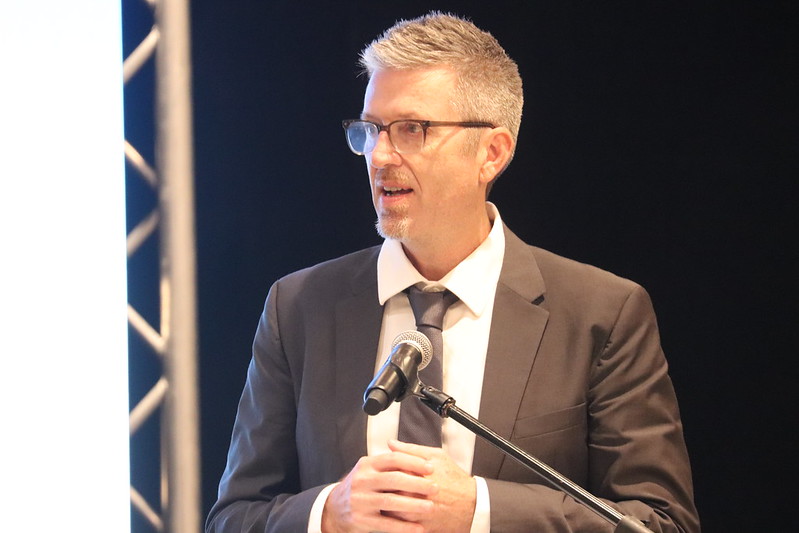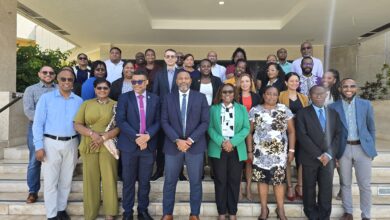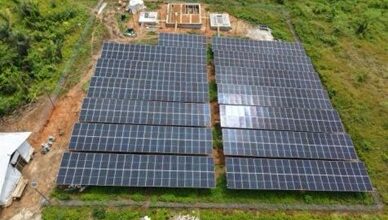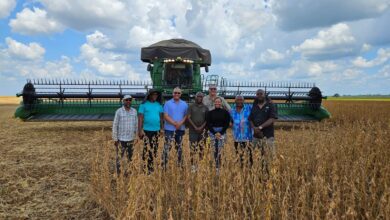It is a true honour to join you in commemorating the 19th annual Caribbean Week of Agriculture—a powerful testament to our shared commitment to advancing the agricultural sector and confronting the pressing challenge of food security across the region.
Before I proceed, allow me to express my sincere appreciation to the Government and People of St. Kitts and Nevis for their leadership in hosting this year’s CWA.
This year’s gathering comes at a pivotal moment.
The Caribbean Week of Agriculture has long been a vital platform—but today, it offers us a unique opportunity to strategize and intensify our collective efforts to support transformative initiatives under the framework of CARICOM’s 25 by 25 + 5 initiative.
We do so against a backdrop of global uncertainty—where protectionist policies, trade disruptions, and the increased potential for supply chain shocks are contributing to inflationary trends that threaten to erode purchasing power.
Food prices in the region are already among the highest in the world and represent the principal driver of food insecurity for the poorest populations, including those struggling to recover from the impact of climate disasters.
As with many of us gathered here today, I followed the events at the United Nations General Assembly last week with keen interest.
At a certain point, I reflected on the words of the Irish poet WB Yeats during the First World War: ‘Things fall apart; the centre cannot hold.’
I then listened as Prime Minister Mia Mottley referenced these same words in her remarks with reference to the great Nigerian novelist Chinua Achebe and I thought to myself, maybe I’m not alone here? Maybe I’m on to something?
As I read through the lines of this poem again, however, these words jumped off the page.
“The best lack all conviction, while the worst are full of passionate intensity.”
One thing should be clear to us. This is not a time to give in to despair. It is not a time to lack conviction. Instead we must rise to the occasion and adapt to the evolving global context with the needs and interests of the people who need us most at the very center of our work.
Let us be the ones filled with passionate intensity.
This year’s theme—“Sowing Change, Harvesting Resilience: Transforming our Caribbean Food Systems for 2025 and Beyond”— is a call for urgent action.
And while the challenges are stark, the opportunities are also real—and within our grasp.
First, we must confront the systemic vulnerabilities that expose the region to global price shocks.
Narrowly based food import markets, real-time supply chains, and limited productive and processing capacity leaves the Caribbean vulnerable to every storm, pandemic, and distant conflict.
The impacts are anything but mere abstractions—they are the lived experience of those people who do not know where their next meal is coming from.
Today, an estimated 3.2 million people – or 42% of the English and Dutch speaking Caribbean—are food insecure.
The inequality in access to nutritious food is not just a number—it manifests in the daily reality faced by people across the Caribbean and undermines health, education, and economic opportunity.
While we rightly set goals and targets in terms of economic and trade data, we should also seek to frame success around progress in achieving food security outcomes –
with a particular focus on improving access to food for populations represented in the bottom quintiles of income measurements.
Second, we must champion an integrated approach to facilitate the movement of commodities and value addition within the region and explore scalable solutions for import diversification.
With its unique geographic position between the markets of North and South America, trade can become a a source of strength for the region – rather than a vulnerability.
To achieve this, however, investments in transport and trade infrastructure must be mobilized with a view to incentivizing local producers and private sector actors along the value chain.
In addition, barriers to intra-regional commodity trade must be transformed into enablers of shared prosperity between Caribbean nations. Fundamentally, our efforts must proceed from analysis and dialogue – to action and implementation.
At the same time, we must empower communities from the ground up.
Expanding household production and promoting livelihood opportunities grounded in community-based approaches – complemented by social protection programmes can serve to reduce household food expenditures, increase income levels, promote recovery from natural disasters, and improve access to nutritious diets.
Similarly, school meals programmes linked to local agricultural production can serve to build community cohesion, act as a bridge to support emerging producers to transition from public procurement systems to competing in open markets –
While providing access to the fresh fruits and vegetables – and the vitamins and minerals that young minds require to thrive.
In conclusion, I reaffirm the unwavering commitment of the World Food Programme to support CARICOM nations and their people on the journey to food system resilience.
Let us be the ones to embrace the challenge of this moment with passion and with conviction.
Let us build the partnerships, strengthen the systems, and unlock the financing needed to realize the vision of 25 by 25.
And let us work together to build a resilient and peaceful future for the generations to come—one where every Caribbean citizen has consistent access to safe, nutritious food and the opportunity to prosper.
And since I have referenced an Irish poet in my remarks, let me close with a phrase often credited to the first President of Ghana, Dr Kwame Nkrumah, and made famous of course by the artist Jacob Miller:
Forward Ever, Backward Never.
Thank you.






